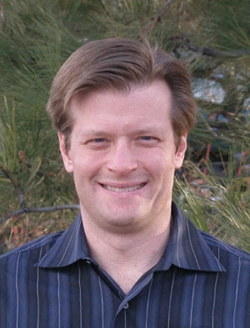
A recent report from Xcel Energy detailing earnings on electric energy in Colorado shows the utility exceed the maximum profit set by the Public Utilities Commission (PUC) by more than 11 percent. Despite excess earnings for the company’s Colorado subsidiary, known as the Public Service Company of Colorado (PSCo), a May 1 statement from Xcel says the utility plans to file for future electric rate increases in the state in 2015 and beyond.
Documentation compiled by local Xcel watchdog agency Empower Our Future shows that Xcel has asked for, and been granted, six back-to-back rate increases since 2003. With record profits in 2013 and the company’s plan to seek a seventh increase in 2015, some citizens are raising questions about the validity of the utility’s requests.
“I think the overall allocation of profits for utilities probably needs to be reviewed — are we setting up incentives correctly so that we get the behavior we want out of the regulated monopoly that provides us with power?” says Boulder City Council member Sam Weaver, who acted as the main author of the report from Empower our Future prior to his election to Council last year.
Weaver says he used federal 10-K financial filings and public reports from Xcel to compare the utility’s sales and generating capacity to their pre-tax profits from 2003 to 2012.
“When you look through the [U.S. Securities and Exchange Commission’s] 10-K forms where [Xcel/PSCo] file their peak capacity [in megawatts] and they files sales in terms of kilowatt hours, it’s pretty straightforward,” says Weaver. “Demand is not growing. Even though they are not providing us with additional sources of electricity or additional capacity, Xcel is getting huge increases in profits.”
According to the Empower our Future report, the Colorado division’s pre-tax profits have grown from $316 million to $691 million between 2003 and 2012. Weaver says the company filed more than 700 million in pre-tax profits in 2013.
In a May 1 press release, Xcel acknowledged that as a result of their last rate increase — a first-time, threeyear rate plan that set up tiered increases from 2012 to the end of 2014 — the company has asked the PUC for permission to credit customers across the state with $45.7 million. So beginning Aug. 1, residential customers in Colorado would see a $1.17 credit per month while small business owners will see a $2.33 credit each month.
The three-year agreement raised rates by a total of $114 million.
“At the time that this three-year plan was approved, it was approved as part of a settlement agreement that was reached by pretty much every party
in the case: Xcel, PUC staff, the [Office of ] Consumer Council, a number of medium and large electric consumer groups and trade groups, and all of them agreed this was a fair resolution to the case and provided fair rates to the company and rate payer,” says PUC spokesman Terry Bote.
Bote says the commission created the profit-sharing mechanism as a protection, for customers when the utility exceeds their target profit.
When asked how he would respond to criticism of the record profits stemming from the multi-year agreement, Mark Stutz, a spokesperson for Xcel/ PSCo, says that “it’s difficult to predict some aspects of our business in terms of weather, in terms of what your expenses will be.” Stutz reiterates Bote’s statement that the authorized profits from the multi-year settlement were found to be “prudent” by all parties involved, and the profit-sharing mechanism had not been so well defined in previous settlements.
Regarding the utility’s plan to file for future rate increases, Stutz says it would be the company’s preference to have another multi-year plan, “because we think they’re good for the customer and good for the utility.”
While Colorado’s Consumer Council — an advocate for customers of electric, gas and telecommunications businesses — agreed to the multi-year rate increase plan, director Cindy Schonhaut says it’s not in the public’s best interest.
“We don’t like multi-year plans in this office,” says Schonhaut. “We think [multi-year plans] allow for this opportunity to overearn and later keep some of [the excess profits] and then give refunds, which is not in the longterm consumer interest. [The longterm consumer interest] is to pay the right rate at the time they are billed.”
Weaver says that the system that governs the profit-making of the utility seems “a little broken” to him.
“And it’s really not simply Xcel’s fault. It’s a matter of [how] Xcel, PUC, and the state legislature has set up a series of incentives that allows Xcel to make increasing profits as it makes additional investments in generation faculties,” says Weaver. “Xcel has every incentive to build more whether or not additional generation is needed.”
The last coal-fired power plant built in Colorado, the Comanche 3 plant in Pueblo, was heavily criticized by environmental groups who questioned the facility’s impact on emissions and surrounding wilderness.
“The tragic part of all of this is that Xcel’s back-to-back rate increases during the worst economic crisis in a century have taken hundreds of millions of dollars from their ratepayers, including businesses both large and small as well as fixed and low-income ratepayers, to pay for a billion-dollar coal plant that never should have been built — a billion dollar toxic and polluting mistake that is rapidly becoming a stranded asset,” longtime Xcel watchdog Leslie Glustrom said in an email to the Boulder Weekly.
Xcel says that future rate increases in Colorado will go toward completion of infrastructure investments, “including the estimated $1 billion investment in the Colorado Clean Air, Clean Jobs Act,” which aims to reduce carbon dioxide emissions by about 28 percent.
Property tax expenses and “other cost changes” will also be covered by rate increases, according to the utility.
“If the legislature was doing to taxes what the PUC has been doing to electric utility rates, all hell would break loose,” Glustrom added.
Respond: [email protected]














